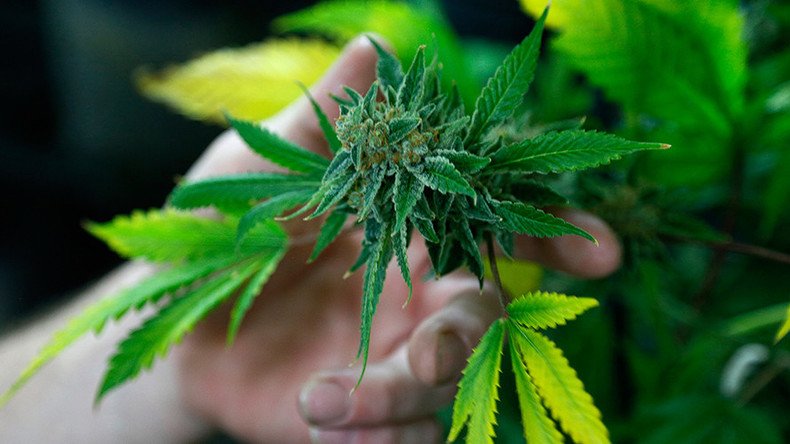1 pot bust every 49 seconds in US – FBI

While medical marijuana may be legal in 25 states, new crime data shows that police made more than 600,000 marijuana-related arrests in 2015, according to the FBI. Among those arrests nearly nine out of 10 were for possession, not sale or cultivation.
Among a total of 1.5 million drug arrests in 2015 in the United States, 38.6 percent were for marijuana compared to 19.9 percent for heroin, cocaine and derivatives, and 5.1 percent for synthetic or manufactured drugs.
Broken down for marijuana possession arrests totaled 574,641 while trafficking and sale arrests totaled 64,480. It translates to one pot bust every 49 seconds. While half a million arrests may seem high, it still represents a drop of 2.3 percent from 15 years ago.
“By contrast in 2000, a total of 734,497 Americans were arrested for marijuana offenses of which 646,042 (40.9 percent) were for possession alone,” stated the data released by the Federal Bureau of Investigations.
More than 1.5 mil drug arrests in 2014, 80%+ were for possession only, about half were for marijuana https://t.co/u4JttmhHqk via @nytvideo
— Evelyn Nuno (@emnuno21) October 3, 2016
A widely-cited 2013 ACLU report estimated that the total cost to taxpayers of marijuana possession enforcement in the U.S. was $3.6 billion. It also found that, while whites and blacks use marijuana at similar rates, black users were four times more likely than whites to be arrested for it.
The Drug Policy Alliance said earlier this year most people arrested for marijuana use are held in jail for at least a day but receive a criminal record that can affect their employment.
Nearly 9 in 10 marijuana arrests were for simple possession in 2015.https://t.co/zrpsCL1Zya
— Durango Organics (@DurangoOrganics) September 29, 2016
While marijuana is being approved for medical and recreational use in states across the nation, the US government still lists marijuana alongside heroin as a Schedule I controlled substance, meaning it has a “high potential for abuse.” Despite attempts to get the drug declassified, the Drug Enforcement Administration said in August the drug would not be reclassified.
"This decision is based on whether marijuana, as determined by the FDA, is a safe and effective medicine, and it's not," said DEA Acting Administrator Chuck Rosenberg, according to NPR.
The DEA did announce the same month policy changes to expand the number of agency-related marijuana manufacturers, allowing universities to apply to grow and distribute marijuana for government-approved research purposes.
Opioid use decreases in US states that legalize medical marijuana - study https://t.co/mPlhpgzPHm
— RT America (@RT_America) September 17, 2016
A full half of US states have already legalized smoking marijuana to combat certain medical conditions, such as glaucoma, cancer or nerve pain, despite the fact that pot use remains a federal crime.
Four states – Alaska, Colorado, Oregon and Washington – and the District of Columbia have legalized recreational marijuana, while another 12 have decriminalized its use. Missouri will join their ranks at the start of 2017, though the state – along with Minnesota, Nevada, North Carolina and Ohio – currently defines marijuana possession as a criminal misdemeanor not punishable by jail time.
Medical marijuana research farms to grow, but pot remains 'dangerous drug' https://t.co/xZmZUnI2f2pic.twitter.com/ixjs6XY8k2
— RT America (@RT_America) August 11, 2016
Voters in an additional nine states will decide whether to legalize its use for medical or recreational purposes in November. Among them Florida, Arkansas, North Dakota and Montana voters will decide on whether to approve marijuana for medical use. Voters in California, Nevada, Arizona, Massachusetts and Maine will decide whether to approve marijuana for recreational use.












